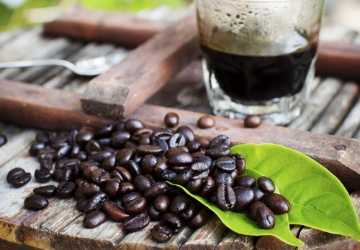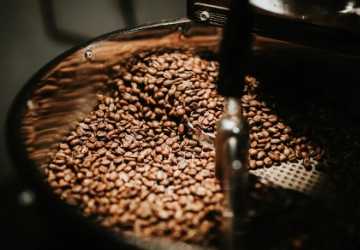What Does Single Origin Have to Do with Your Experience of coffee?
Picture this: You’re standing in your favorite café, and the aroma of freshly brewed coffee fills the air. As you glance over the menu, your eyes catch the words “Single Origin.” Curious? Wondering what single origin coffee means for your coffee experience.
In the world of coffee, “single origin” is more than just a label. It’s a story—about where the single origin beans come from, their journey from farm to cup of coffee, and the unique flavor they impart.
Join us as we explore the fascinating world of single origin coffee. We’ll learn what makes it unique, how it affects the flavor in your cup, and why it’s more than just a trend—it’s a commitment to quality and sustainability. So grab your favorite cup, brew a fresh pot of coffee, and let’s explore the world of single origin coffee together.
Single Origin: Every Cup Has a Whole Story!
Unlike blended coffee, which is like an orchestra with individual instruments mixing their sounds, single origin coffee is the soloist. Every cup has a transparent origin story, with the single origin proudly presented on the label.

Imagine following the journey of your beans: Maybe they come from a partner farm in Ethiopia’s lush Yirgacheffe Highlands, where cool mornings and intense afternoon sun nourish them, giving off vibrant citrus and blueberry aromas. Or maybe they come from a volcanic estate in Guatemala, where rich soil and volcanic ash impart light dark chocolate and warm spice notes to the beans.
Every detail—altitude, rainfall, processing methods (washing, sun drying, honey processing)—plays a role in shaping the unique flavor of single origin coffee. It’s more than just a morning pick-me-up; it’s a sensory adventure that savors the essence of faraway lands with every sip. With Single Origin, your cup of coffee becomes a window to the world, taking you to the places where these extraordinary beans were born.
Dive Deeper: Single Origin vs. Blended Origin
So what’s the difference between single origin beans and blends? Let’s discuss the single origin vs. blended coffee debate.
Understanding Blends
Blended coffee, as the name implies, is a combination of beans from different origins. Roasters carefully select beans with complementary flavors to create a well-rounded and consistent coffee. This results in a more balanced flavor experience, often with a medium body and acidity. Blends are popular because they are reliable and cover a wider range of taste preferences.
Single Origin: A Celebration of Uniqueness
Single Origin coffees, by contrast, highlight the distinct characteristics of beans from a single origin. This could be a specific farm, region, or even a single crop. Each origin has unique growing conditions, processing techniques, and bean varieties that are reflected in a unique flavor profile. At Single Origin, the focus is on appreciating the inherent qualities and underlying complexity of a particular coffee.
Single Origin: Quality and Sustainability
Finding Premium Beans
Single Origin coffees often go hand in hand with a focus on high-quality beans. Since the origin is transparent, roasters have a greater incentive to source premium beans that embody the best characteristics of that specific region. This careful selection process allows them to highlight the unique flavors and aromas that result from a specific terroir (a combination of soil, climate, and growing conditions). This focus on quality results in a more differentiated and delicious coffee experience for you, the coffee drinker.

Transparency Promotes Sustainability
The emphasis on traceability inherent in single origin coffee can also promote sustainable practices. Knowing the origin allows consumers to make informed decisions and support farms that prioritize ethical labor practices, environmental stewardship, and long-term plant health. This transparency fosters connections between coffee drinkers and the places where their coffee originates, potentially creating demand for sustainable coffee production. Ultimately, this is good for both the environment and the coffee-growing communities that depend on it.
Catalyst for Positive Change
When you choose single origin coffees, you’re not only choosing unique flavor profiles; they’re also potentially contributing to a more sustainable coffee industry. This awareness can allow you to support roasters that are committed to ethical sourcing and environmentally sustainable practices.
Is Single Origin Coffee Better?
There’s no one-size-fits-all answer to whether single origin coffee is “better” because it depends on your preferences. You can weigh the pros and cons of single origins and blends to make your decision. To help you further, here’s a good rule of thumb:
· If you’re new to coffee, consider starting with blends to try different flavors.
· If you’re a coffee lover, you can fearlessly try Single Origins, appreciate the unique flavors, and support specific regions.
· If you want to enjoy a consistent cup of coffee, stick with blends.
· If you’re adventurous, try Single Origins to experience different flavors.
In the end, it’s best to try both! Maybe you’ll discover a favorite single origin or appreciate a familiar blend.
Elevate Your Everyday Drink: The Appeal of Single Origin Coffee
So what does single origin coffee mean for your coffee experience? It’s a chance to turn your everyday drink into a sensory adventure. Single origin coffee offers a transparent origin story, with each sip carrying a unique flavor cultivated through specific growing conditions and careful processing methods. It’s a departure from consistency and offers a chance to appreciate the inherent characteristics and complexity of beans from a specific region.In addition to a delicious journey, single origin coffee can also represent a commitment to higher quality beans and potentially support sustainable practices within the coffee industry.
Now are you ready to start your own single origin adventure? Ask a local barista about his selections and discover unique flavors from around the world. After a little exploration, you might just discover your new favorite coffee!